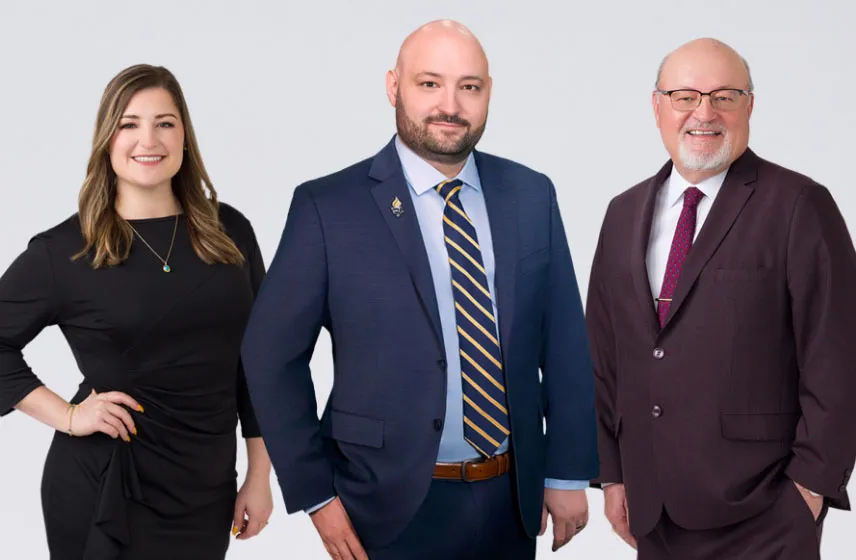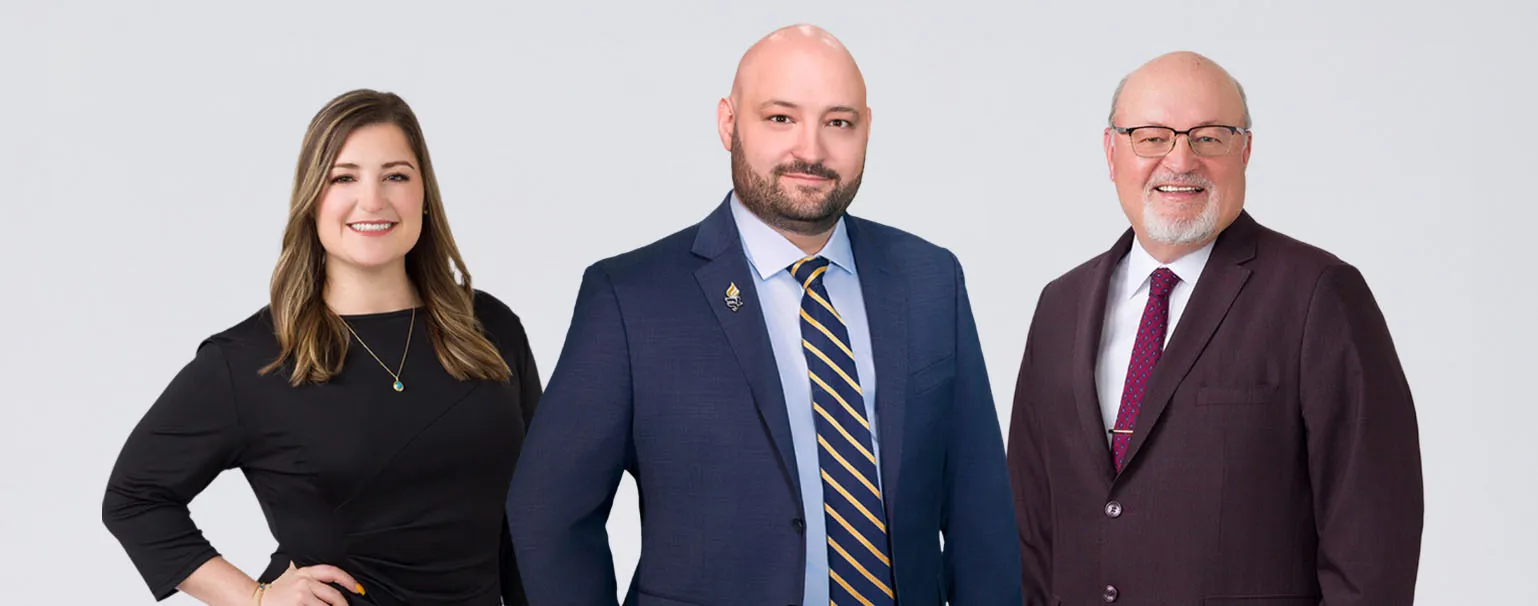
When you are hurt in a car accident, who is at fault? In a crash that happens when one driver is backing up, it may seem clear who is responsible and who should have to pay damages to those hurt.
But in truth, finding out who’s at fault when backing up is a complicated matter best left to an experienced and resourceful car accident lawyer.
How Does Negligence Work in Nevada?
When an accident such as a backing-up crash happens in Nevada and you or others sustain injuries, the legal principle of negligence helps insurance companies, attorneys, and courts determine who should be held responsible.
Using available evidence and witnesses to the crash, these parties will look for behavior or actions that were careless under the circumstances and caused or contributed to the crash.
Negligence is not something applicable only to one person at a time. It is possible for two or more individuals to have acted negligently in the same incident. When this situation arises in the context of a backing-up accident, it falls on those involved to determine what role each party’s negligence played in causing the crash.
Nevada Revised Statutes 484B.113 — Unsafe Backing
Nevada Revised Statutes 484B.113 defines and explains what constitutes unsafe backing. You are not permitted to drive your vehicle in reverse for any reason or for any distance unless you can do so safely and without getting in the way of other traffic.
The statute also lists several situations in which you may never drive in reverse. You cannot back up into an intersection or crosswalk, nor may you drive in reverse around a street corner. Doing any of these things is always considered to be unsafe backing.
Who Has the Right-of-Way?
Right-of-way refers to which person or vehicle has the legal right to proceed with their travel while others must wait. Nevada Revised Statutes 484B.113 clearly states that a person who is backing up must yield the right-of-way to all other moving traffic and pedestrians.
3 Factors that Determine Fault in a Backing-Up Accident
Who is at fault in a car accident when backing up? The answer depends on 3 factors:
1. Negligence
A court will first consider whether any involved party acted carelessly, or negligently, in the situation. Negligence simply refers to conduct that a reasonably careful person would not engage in under the circumstances.
Negligent actions may include backing up when it’s not safe to do so or driving in reverse where you cannot legally do so. They could also include speeding through a crowded parking lot or being distracted by your phone and running into a reversing vehicle.
2. Right-of-Way
Next, who has the right-of-way will also factor into who is at fault if you are backing up. Is the person backing up always at fault? Not necessarily. Who has the right-of-way needs to be considered.
If the driver of the backing-up vehicle waited for all moving traffic and pedestrians to clear before driving in reverse, they may have had the right-of-way.
3. Contributory Negligence
In a 2-car or 3-car accident, who’s at fault? The answer can be that all the drivers involved in the crash could be at fault in some way or another. After looking for who acted carelessly and who had the right-of-way, the court will consider the role any contributory negligence from other drivers played.
Those who were not the primary cause of the crash but still operated their vehicles negligently may still be able to recover compensation. However, whatever compensation they do receive will likely be reduced in proportion to the extent their carelessness contributed to the wreck.
Is Unsafe Backing Considered to Be a Moving Violation in Nevada?
Under Nevada law, unsafe backing is considered to be a moving violation. This infraction is a moving violation because it takes place while your vehicle is in motion. In other words, you cannot be cited for unsafe backing if your vehicle remains in park and does not move.
Because unsafe backing is a moving violation, it will be recorded on your driving record. You may also see an increase in your insurance rates if you are convicted of this offense.
What Are Some Common Scenarios of Backing-Up Accidents?
As the name implies, a backing-up accident occurs when at least one of the vehicles involved was traveling in reverse. It may seem as if these accidents are rare given that vehicles must generally be driven forward on roads and highways. Yet there are several common situations where a backing-up wreck might occur:
Driver Backing Out of a Driveway or Parking Space
Who’s at fault when backing up in parking lots? If the driver fails to yield the right-of-way to others, speeds when in reverse, or otherwise acts negligently when backing out of a parking space, they may very well be the cause of an accident.
When a driver is in reverse, their field of view is limited, and controlling their vehicle’s direction can be difficult. When these factors are not appreciated and reflected in slow, controlled movements, a crash is likely to occur.
Driver Reversing on a Busy Street or Parking Lot
Suppose that you missed your turn into a business or saw a parking spot open up behind you in a parking lot. You may be tempted to throw your vehicle into reverse and get back to where you want to be. This sudden movement, especially when committed on a busy street, is careless and will likely cause a traffic snarl or collision.
Driver Backing Up to Avoid an Obstacle
Perhaps an obstacle like a tree limb or utility pole came crashing down in front of a driver’s path of travel. In this situation, the driver may need to drive in reverse to find an alternate route around the hazard.
This is a dangerous maneuver, though, and should be attempted only after ensuring that traffic to the rear is aware of the problem and allowing the vehicle to move.
To reduce the risk of a crash, the driver should only travel in reverse as far as is necessary.
Who Is to Blame for Rear-End Crashes in Las Vegas, Nevada?
Who is at fault in a rear-end car accident? It can be one of several individuals or entities. These may include the front driver, the rear driver, or a third party.
When the Front Driver Is at Fault
If the front driver makes a sudden or abrupt maneuver and fails to give adequate opportunity to other drivers to avoid crashing, the front driver may be at fault. Suddenly backing out into a street in front of traffic, stopping suddenly and without cause, or failing to signal before making a turn can lead to a front driver being at fault.
When the Rear Driver Is at Fault
Rear drivers who are following the vehicle in front of them too closely may be primarily at fault in a rear-end crash. A rear driver who becomes impatient with traffic and tries to move around a stopped or reversing car in front of them when such a vehicle has the right-of-way can also be found to be the primary cause of an accident.
Third Parties Who May Be at Fault
Other drivers may have crashed into the rear driver, forcing the rear driver to collide with you. Or a third party’s negligent driving may have caused another driver to make a sudden maneuver to avoid a collision, only for that driver to collide with you. In situations such as these, you can look to the third party for damages.
What if I Was Partially at Fault?
Suppose that more than one person may be responsible for causing your rear-end collision, and you and the other parties cannot agree to a settlement.
It would then fall to a judge or jury to determine who is responsible and the extent of their liability. This would be expressed in terms of a percentage, such as one party being 75% liable and the other being 25% liable.
Under Nevada Revised Statute 41.141, an injured party can receive compensation through a lawsuit or claim following any car accident as long as their carelessness is not the primary cause of the crash. In this situation, any compensation you receive would be adjusted to account for the role your actions played in the wreck.
What Options Are Available for Accident Victims?
If you have been hurt in a backing-up crash and have suffered injuries, you have several options available to you for your next steps.
You can:
- Pay for your medical bills and repair costs out of pocket
- Do nothing at all, and live with the consequences of the crash
- File an insurance claim with your insurance company and pay your deductible
- File an insurance claim with the at-fault driver’s insurance company
- Accept a settlement from the other party, if offered
Or you can file a car accident lawsuit in Las Vegas and seek compensation through the civil justice system. If none of the listed options fully compensates you for your losses, a lawsuit may be the only option available for you to receive the monetary damages you need.
You should discuss your case with an experienced Las Vegas car accident lawyer who can lay out your options and help you make an informed decision in your best interests.
Should I Call an Attorney After an Accident Backing Up My Car?
In a car accident, who is at fault is the central question that needs to be addressed. The answer to this question determines who receives compensation and in what amount. The answer is not always clear, though, which is why having a knowledgeable attorney in Las Vegas review the facts of your backing-up accident is crucial to your case.
After a thorough analysis of the crash, including a review of police reports and witness statements, photographs of the scene, and any electronically stored data, a skilled car wreck lawyer can determine your legal rights.
While it may seem like a hassle to involve an attorney in your situation, especially when the other driver’s insurance company is offering you a quick settlement, talking with a lawyer is the best way to ensure that you pursue appropriate damages for your accident.
Consider Speaking with a Car Accident Attorney in Las Vegas Today
Do not miss an opportunity to obtain compensation after a backing-up accident.
Even if you think you know who is at fault in a car accident when backing up, it is still worthwhile to have an experienced Nevada car accident lawyer look at your case. You may be able to recover compensation even if your carelessness played a secondary role in the crash. Bay Law will help you protect and assert your legal right to compensation. Call us today for assistance with your case. Make them pay with Bay!




